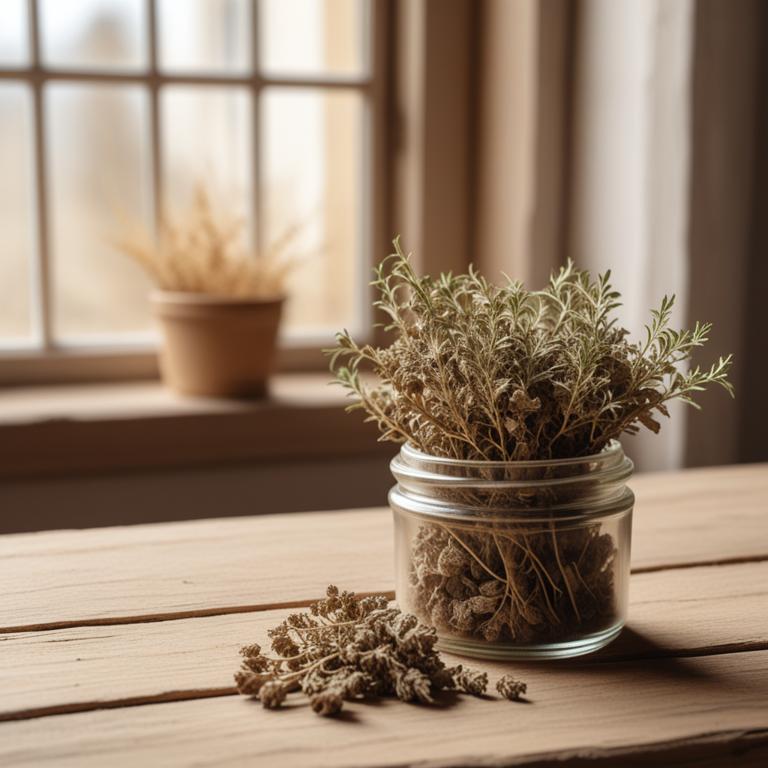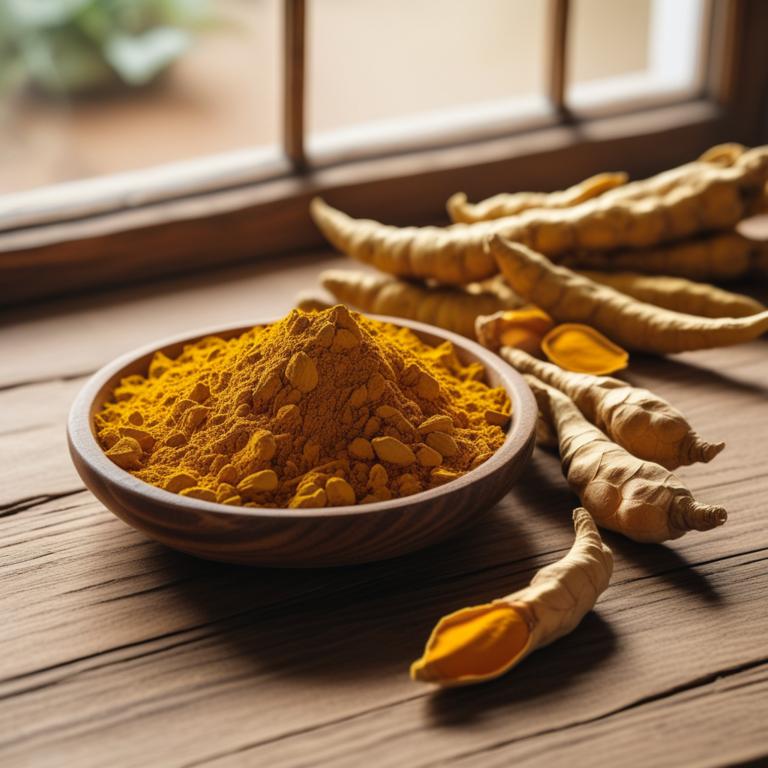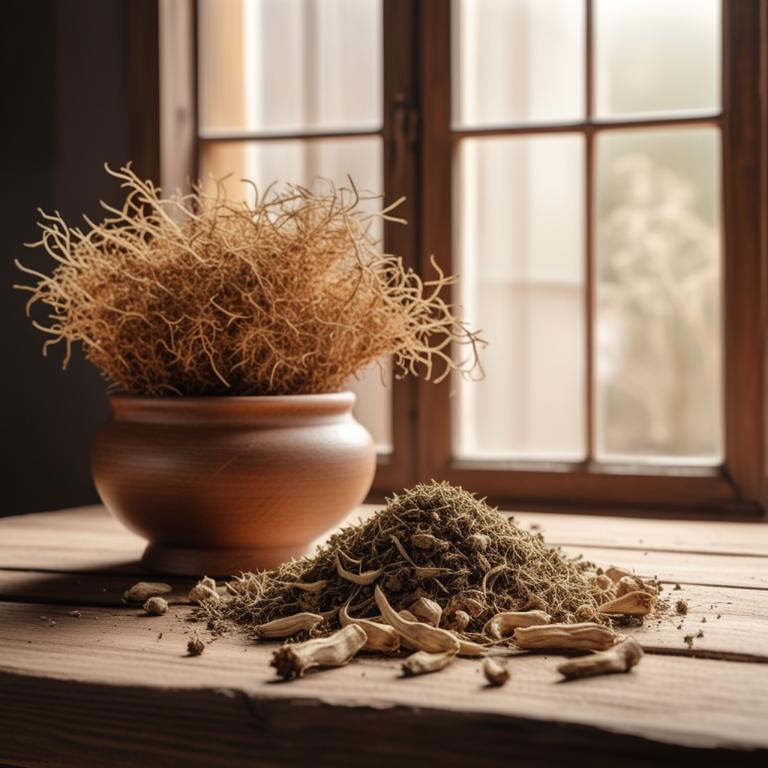Updated: Dec 1, 2024
Herbal Solutions for Reducing Joint Stiffness and Improving Mobility
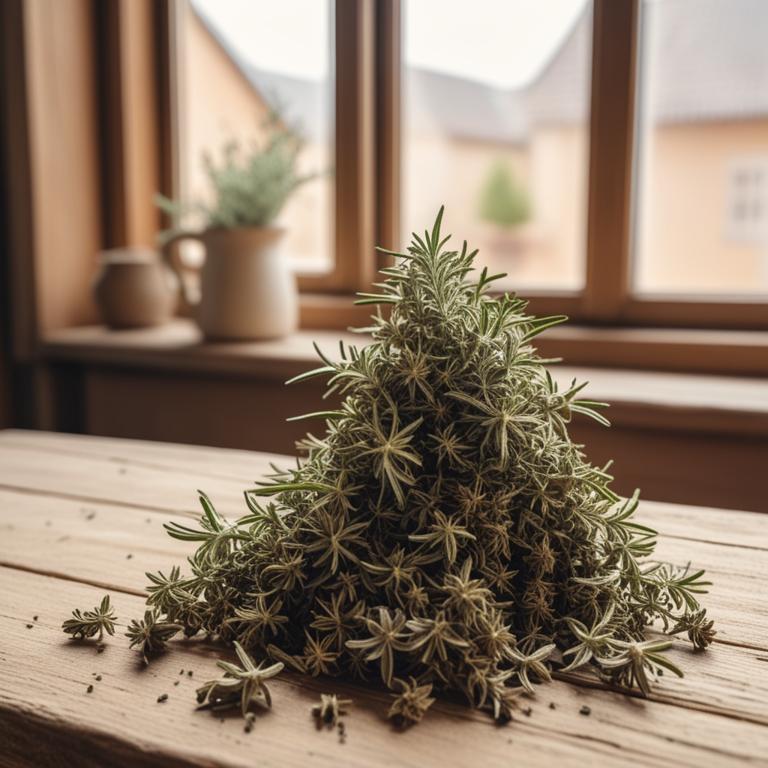
Joint stiffness is a common problem that can make everyday tasks a challenge.
It's a feeling of stiffness or soreness in your joints, especially after a long period of rest or inactivity. This can affect your ability to move around, perform daily activities, and even sleep properly. Joint stiffness can be caused by a variety of factors, including aging, overuse or injury, and underlying health conditions such as arthritis or fibromyalgia. To alleviate joint stiffness, herbal remedies can be a natural and effective option. Certain herbs, like ginger and turmeric, have anti-inflammatory properties that can help reduce swelling and pain in the joints.
Willow bark, which contains salicin, a compound similar to aspirin, can also help to reduce inflammation and ease pain. Another herb, boswellia, has been shown to reduce joint inflammation and improve mobility. To use these herbs, you can try making teas or infusions by steeping them in hot water. You can also take them in capsule or supplement form. Some people also use topical creams or ointments that contain these herbs to apply directly to the affected areas.
Drinking ginger tea or adding turmeric to your meals can also be a simple way to incorporate these herbs into your daily routine.
Table of Contents
- What are the reasons for joint stiffness?
- How do herbs help to alleviate symptoms of joint stiffness?
- What are the primary medicinal herbs for reducing joint pain and stiffness?
- What are the best herbal remedies for reducing joint stiffness?
- What herbs are contraindicated for people with joint stiffness?
- FAQ
What are the reasons for joint stiffness?
The main causes of joint stiffness are a combination of wear and tear, inflammation, and autoimmune disorders.
Osteoarthritis is the most common cause of joint stiffness, caused by the gradual wear and tear of the cartilage that cushions the joints, leading to bone-on-bone contact and pain. Rheumatoid Arthritis is an autoimmune disorder that causes the immune system to attack the lining of the joints, leading to inflammation and stiffness.
Tendinitis occurs when the tendons, which connect muscles to bones, become inflamed due to overuse or injury, causing pain and stiffness in the affected joints. Bursitis is also caused by inflammation, but this time it affects the fluid-filled sacs (bursae) that cushion joints and reduce friction between moving parts. Gout is a type of arthritis caused by the buildup of uric acid crystals in the joints, leading to severe pain and stiffness.
Fibromyalgia is a chronic condition characterized by widespread muscle pain and stiffness, which can be triggered by hormonal changes, stress, or injury, affecting multiple joints and muscles throughout the body.
How do herbs help to alleviate symptoms of joint stiffness?
Using herbs for joint stiffness can bring several benefits.
One of the main advantages is pain relief, as these herbs contain compounds that reduce inflammation and ease discomfort. Many people experience improved mobility, allowing them to move more freely and perform daily tasks without difficulty.
Some herbs also have anti-inflammatory properties, which can slow down joint damage and reduce the risk of further injury. Additionally, these herbs can be used as a natural alternative to prescription medications, minimizing the risk of side effects and interactions.
They can also help to reduce stiffness and promote relaxation, making it easier to get a good night's sleep and wake up feeling refreshed.
What are the primary medicinal herbs for reducing joint pain and stiffness?

Herbs have been used for centuries to alleviate joint stiffness, and for good reason.
One of the most effective herbs is Zingiber officinale, or ginger, which contains a compound called gingerol. Gingerol has anti-inflammatory properties that help reduce swelling and pain in the joints. This makes ginger a popular ingredient in many joint supplements. Another herb that's often used to combat joint stiffness is Glycyrrhiza glabra, or licorice root. Licorice root contains a compound called glycyrrhizin, which has anti-inflammatory properties similar to gingerol. Glycyrrhizin helps to reduce inflammation and pain in the joints, making it a valuable addition to many joint supplements. Curcuma longa, or turmeric, is also commonly used to alleviate joint stiffness. Turmeric contains a compound called curcumin, which has powerful anti-inflammatory properties.
Curcumin helps to reduce inflammation and pain in the joints, and it's also been shown to have antioxidant properties that can help protect the joints from damage. Boswellia serrata, or frankincense, is another herb that's often used to alleviate joint stiffness. Frankincense contains a compound called boswellic acid, which has anti-inflammatory properties that help reduce swelling and pain in the joints. Boswellic acid has been shown to be effective in reducing inflammation and pain in the joints, making it a valuable ingredient in many joint supplements. Finally, Arnica montana, or mountain arnica, is often used topically to alleviate joint stiffness. Mountain arnica contains compounds called arnica acids, which have anti-inflammatory properties that help reduce swelling and pain in the joints. When applied topically, mountain arnica can help to reduce inflammation and pain in the joints, making it a popular ingredient in many creams and ointments. These herbs all have anti-inflammatory properties that help reduce swelling and pain in the joints.
They're often used in combination with other ingredients to create effective joint supplements.
What are the best herbal remedies for reducing joint stiffness?

Herbal preparations are great for relieving joint stiffness because they have anti-inflammatory properties that help reduce swelling and pain.
One way to take them is in capsule form. Capsules are easy to swallow and contain a concentrated dose of the herb, making them convenient for people who have trouble swallowing tablets. Decoctions are another option. They are liquid preparations made by simmering herbs in water, which helps to release their active compounds. Decoctions can be taken as a drink, and they're often used for conditions like arthritis, as they help to reduce joint inflammation. Some people prefer topical creams because they can be applied directly to the affected area. These creams contain herbs that are absorbed into the skin, where they can work their magic.
Topical creams are great for people who want a targeted approach to pain relief. Tinctures are liquid extracts of herbs that can be taken sublingually (under the tongue). They're a good option for people who find capsules or decoctions difficult to swallow. Tinctures can be mixed with water or taken as is, making them a versatile choice. Lastly, there's salves. These are topical preparations that are often used to treat skin conditions and joint pain. Salves contain herbs that are absorbed into the skin, where they can help to reduce inflammation and promote healing.
They're often used for conditions like eczema, and can also be applied to joints to relieve pain and stiffness.
Additional Resources:
What herbs are contraindicated for people with joint stiffness?
If you're experiencing joint stiffness, it's best to avoid Aconitum napellus, also known as monk's hood, as it can cause pain and inflammation in the body.
This herb is often used to treat pain and fever, but it can exacerbate joint stiffness and make it harder to move. Additionally, Vitex agnus-castus, or chaste tree, can also be a problem if you have joint stiffness. It can cause muscle spasms, which can lead to more pain and stiffness in the joints. This herb is often used to treat hormonal imbalances, but it's not a good choice if you're already experiencing joint pain. Hydrastis canadensis, or goldenseal, is another herb to steer clear of if you have joint stiffness. It can cause a buildup of uric acid in the body, which can lead to increased joint pain and stiffness.
This herb is often used to treat digestive issues and infections, but it's not a good choice for people with joint problems. Cinchona officinalis, or Peruvian bark, can also cause problems if you have joint stiffness. It can cause blood thinning, which can lead to more bleeding and swelling in the joints, making the stiffness worse. This herb is often used to treat fever and malaria, but it's not a good choice for people with joint pain. Lastly, Lavandula angustifolia, or English lavender, may not be the best choice if you have joint stiffness. While it's often used to treat anxiety and sleep issues, it can cause muscle relaxation, which can lead to more joint stiffness and pain.
This herb is often used to treat insomnia, but it's not a good choice for people who are already experiencing joint pain.
FAQ
Are there any specific herbs that can prevent joint stiffness?
Ginger is often used to help reduce joint stiffness, thanks to its anti-inflammatory properties.
Turmeric, with its active compound curcumin, also has similar effects.
These herbs may help reduce swelling and ease pain in the joints, making them a popular choice for people looking for natural relief from stiffness.
Is it safe to use herbal remedies for joint stiffness during pregnancy?
When using herbal remedies for joint stiffness during pregnancy, it's best to be cautious.
Some herbs can affect the baby's development or cause problems for the mother. Look for products that are specifically labeled as safe for use during pregnancy.
Choose remedies with gentle, natural ingredients that have been used for a long time.
Are there any herbs that can reduce the frequency of joint stiffness?
Turmeric contains a compound called curcumin, which has anti-inflammatory properties that may help reduce joint stiffness.
Ginger has similar effects, and some studies suggest it can also ease pain and swelling.
Both herbs have been used for centuries to help with joint health, and some people find them helpful in reducing stiffness.
Can i combine different herbal remedies for joint stiffness?
Yes, you can combine different herbal remedies for joint stiffness.
For example, you can mix ginger and turmeric to reduce inflammation and pain. You can also add willow bark to help with pain relief.
However, be sure to follow the instructions for each remedy and start with small amounts to see how your body reacts.
Related Articles
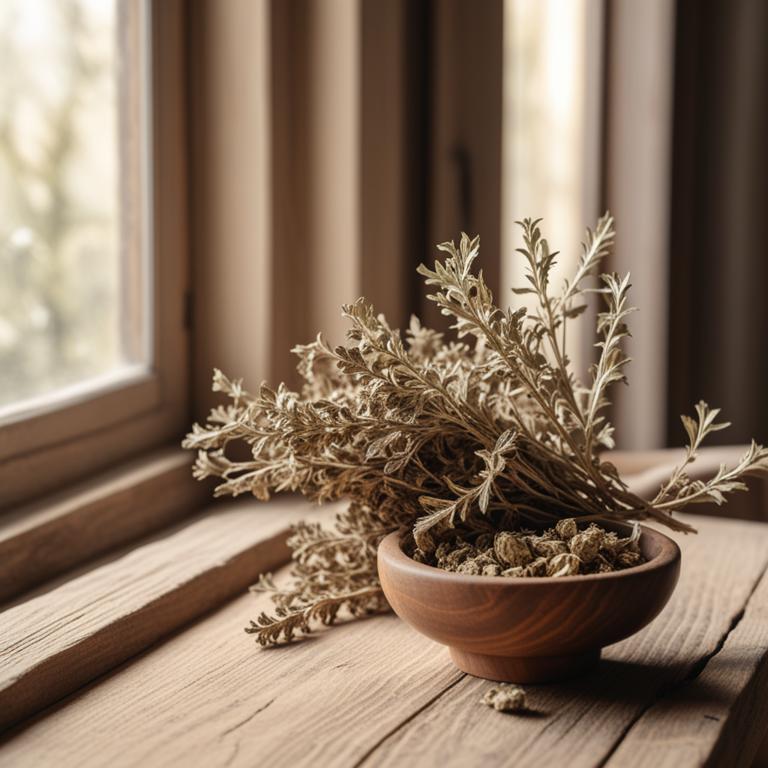
Jaw Lock: Causes, Medicinal Herbs, and Alternative Herbal Treatments
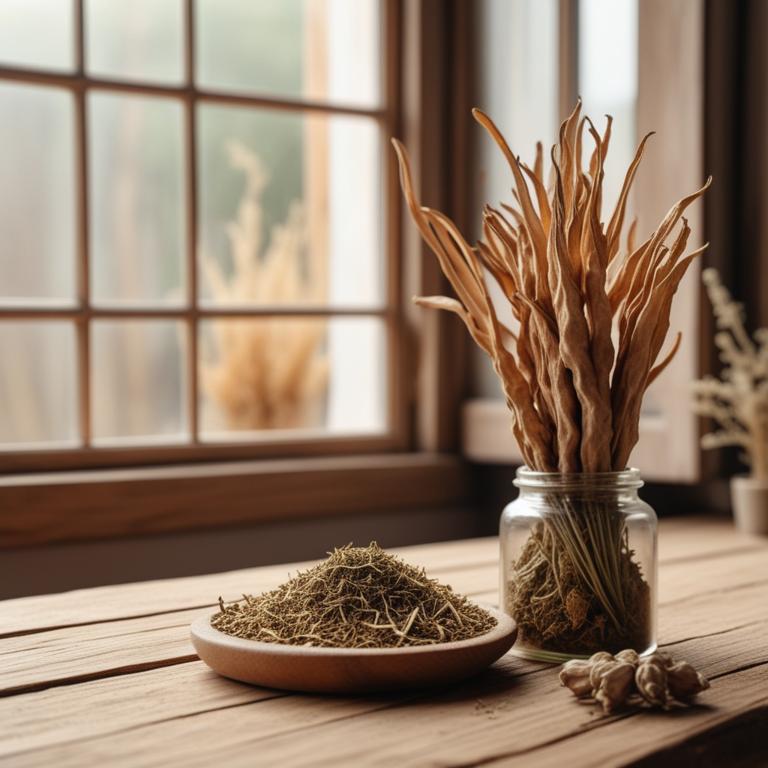
Osteoporosis: Exploring Causes, Medicinal Herbs, and Herbal Preparations
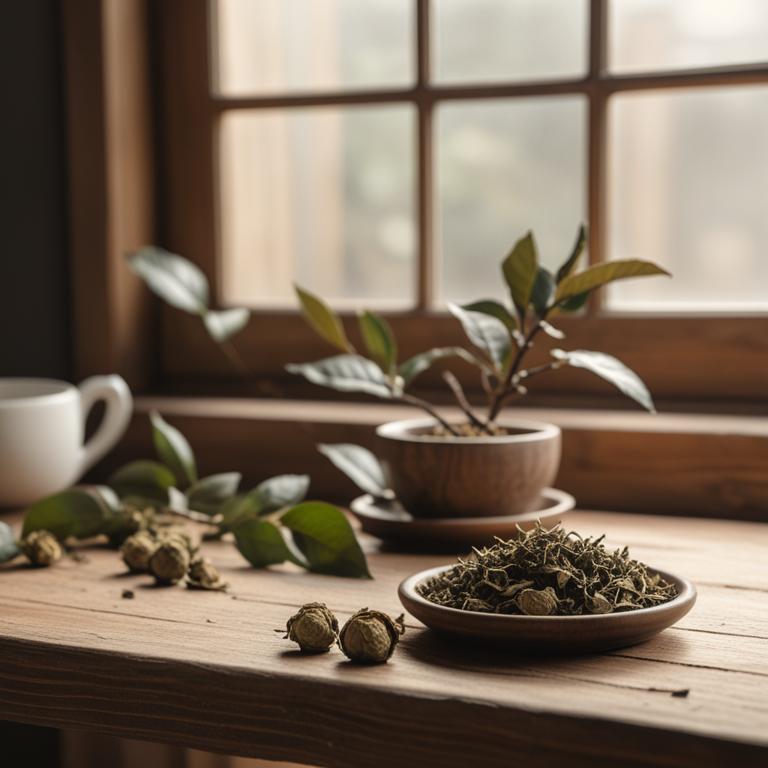
Jaw Pain: Causes, Herbal Remedies, and Homeopathic Preparations
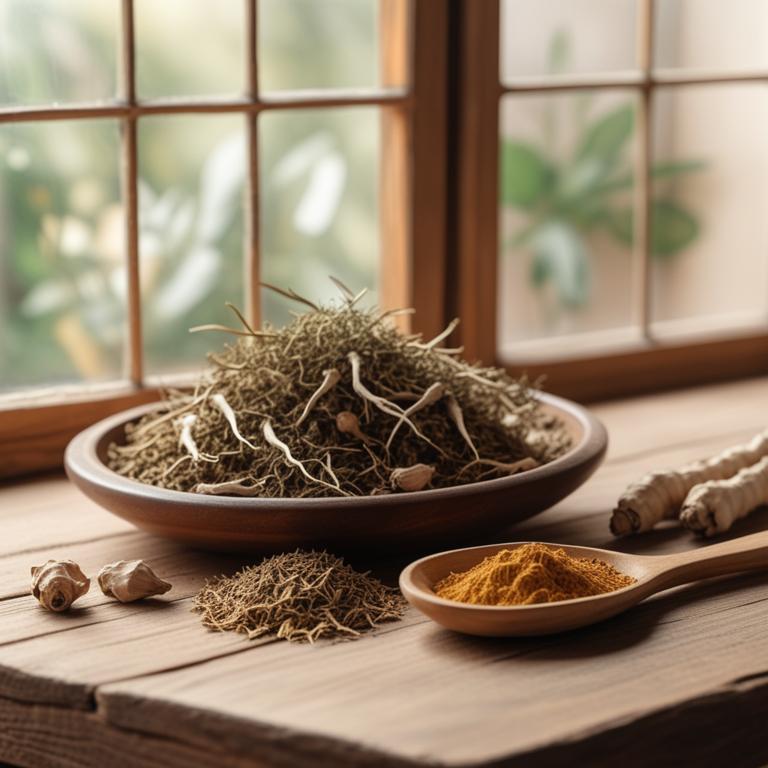
Knee Swelling: A Guide to Medicinal Herbs and Natural Preparations
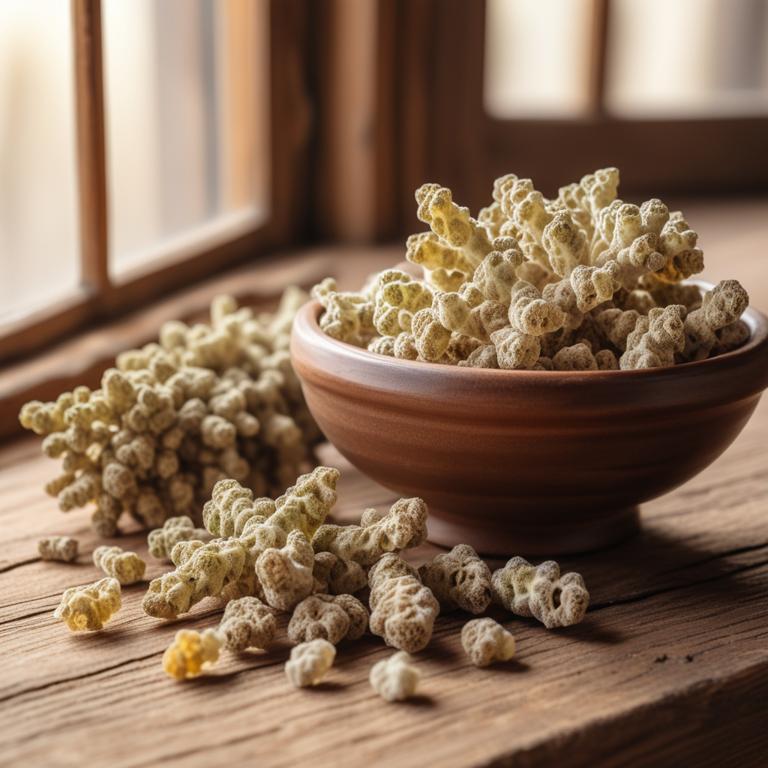
The Osteoarthritis Guide: Causes, Medicinal Herbs, and Herbal Preparations for a Healthier You
